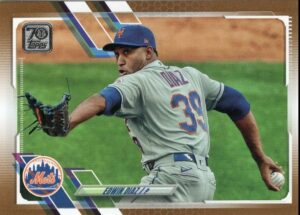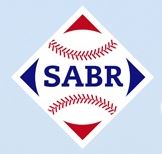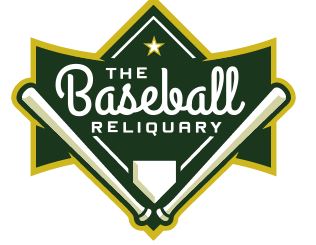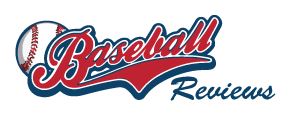 Yesterday (April 29, 2022), five Mets’ pitchers combined to no-hit the Phillies (in New York), as the Metropolitans triumphed 3-0. Tyler Megill started the game and went five innings (three walks, five whiffs), picking up the win. He as followed by Drew Smith, who faced five batters, walking one and fanning four); Joely Rodriguez (one inning pitched, two walks); Seth Lugo (2/3 of an inning); and Edwin Diaz, who fanned the side on 13 pitches in the ninth to save the game and the no-no.
Yesterday (April 29, 2022), five Mets’ pitchers combined to no-hit the Phillies (in New York), as the Metropolitans triumphed 3-0. Tyler Megill started the game and went five innings (three walks, five whiffs), picking up the win. He as followed by Drew Smith, who faced five batters, walking one and fanning four); Joely Rodriguez (one inning pitched, two walks); Seth Lugo (2/3 of an inning); and Edwin Diaz, who fanned the side on 13 pitches in the ninth to save the game and the no-no.
A few side notes:
- It was just the 17th combined no-hitter in AL/N L history.
- It just the second no-hitter (by the Mets) in Mets’ ‘history.
- The five pitchers used was just one shy of the record for a no-hitter.
- The Mets’ pitchers threw 159 pitches (98 strikes), the most pitches in a no-hitter since accurate pitch counts began in the late 1980s.
- It was the 20th no-hitter tossed against the Phillies – tied for the most against any franchise in MLB history (per the Elias Sports Bureau).
Now, in honor of the Mets’ combined no-hitter, let’s revisit the sixteen AL/NL combined no-hitters that preceded the Mets’ effort – and the touch upon circumstances that made many of them unique. Baseball Roundtable has lo0ked at combined no-hitter before, but this seems like a good time for review.
The First-Ever Combined No-Hitter – Babe Ruth Didn’t Hang Around Long
This took place on June 23, 1917 – with the Red Sox topping the Senators 4-0 in Boston. This game is special for several reasons:
- It was the first MLB combined no-hitter;
- Babe Ruth started on the mound;
- It involved the most meager contribution by the starting pitcher (zero innings pitched- one batter faced); and
- It is arguably the most “perfect” combined no-hitter ever.
Babe Ruth, at that time plying his trade as a left-handed starting pitcher for the Boston Red Sox, opened the game by walking Washington’s lead-off hitter Roy Morgan. Ruth, and his catcher Pinch Thomas, took issue with umpire Brick Owens’ strike zone and, during the argument, Ruth made contact with the umpire (a glancing blow, it was reported). The ultimate result of the confrontation was the ejection of both Ruth and Thomas (with Ruth earning a $100 fine and ten-game suspension). Red Sox’ pitcher Ernie Shore was called in to replace Ruth and Sam Agnew took Thomas’ spot behind the plate. Morgan decided to test Agnew’s arm and was thrown out stealing, after which Shore retired the next 26 hitters in order – completing the first combined no-hitter within the minimum 27 total batters. Ruth, by the way, ended the season 24-13, with a 2.01 ERA and a league-leading 35 complete games in 38 starts.
_________________________________________
Second Combined No-Hitter – A Long Time A-comin’
Given the past propensity for pitchers finishing what they started, MLB’s second combined no-hitter came 50 seasons and 70 no-hitters later – on April 30, 1967, with the Tigers defeating the Orioles 2-1 in Baltimore. This combined no-hitter is unique because:
- It was not a shutout.
- The team that threw the no-hitter lost (the only combined no-hitter loss); and
- It involved the briefest contribution by the relief staff (one pitcher/one-third inning pitched).
Orioles’ starter Steve Barber was effectively wild, walking ten hitters and hitting two in 8 2/3 innings. The opposing hurler was Detroit’s Earl Wilson – who matched goose eggs with Barber for seven innings. In the eighth, Baltimore pushed across a run on three walks and a sacrifice fly (Wilson gave up only two hits and four walks in his eight innings of work) and victory was there if Barber could take it. He didn’t. Barber walked Tigers’ 1B Norm Cash to start the ninth. He then walked SS Ray Oyler. Earl Wilson, a good-hitting pitcher, bunted the runners to second and third, before Barber got the second out of the inning, inducing PH Willie Horton to pop up to the catcher. Now, just one out away from a 1-0, no-hit win, Barber uncorked a wild pitch that brought the tying run home. He then walked CF Mickey Stanley, ending his day on the mound. Stu Miller came in to get the final out, but not until an error allowed the go-ahead run to score.
________________________________________
Combined No-Hitter Number Three – Waiting Until the Last Possible Day
This no-hitter came on September 28, 1975, with the A’s topping the Angels 5-0 in Oakland. This game was unique in that:
- It is one of only three no-hitters thrown on the final day of an MLB season;
- It made starting pitcher Vida Blue the first hurler to take part in both a solo and combined no-hitter. (Blue had thrown a solo no-hitter on September 21, 1970.); and
- It was the first time more than two pitchers were involved in a combined no-hitter.
Blue went five innings (two walks, two strikeouts) and was followed by Glenn Abbott (one inning,), Paul Lindblad (one inning, one whiff) and Rollie Fingers (two innings, two strikeouts). Note: Blue has been joined by Kevin Millwood, Kent Mercker and Mike Witt as pitchers with both solo and combined no-hitters.)
______________________________________
Combined No-Hitter Number Four – Tea for Two
The next combined no-hitter went back to the two-pitcher formula, as Blue Moon Odom (five innings, nine walks, three strikeouts) and Francisco Barrios (four innings, two walks, two strikeouts) of the White Sox topped the A’s 2-1 in Oakland. In this July 28, 1976 game, Odom walked seven different players at least once in his five innings of work.
_____________________________________
Combined No-hitter Number Five – At Witt’s End
MLB’s fifth combined no-hitter came on April 11, 1990 (again just two pitchers), with the Angels topping the Mariners 1-0 in Anaheim. Mark Langston started the game and went seven (four walks, three strikeouts) and Mike Witt (the only pitcher to throw a perfect game – September 30, 1984 – and take part in a combined no-hitter ) threw the final two (two strikeouts.)
_______________________________________
1991 – The First “Year of the Combined No-Nos” (plural that is)
1991 saw seven MLB no-hitters, including two combined no-nos. On July 13, the Orioles no-hit the A’s 2-0 in Oakland behind Bob Milacki (who threw six no-hit innings – three walks/three whiffs) and was pulled after being hit by a Willie Wilson line drive. Mike Flanagan (one inning, one walk), Mark Williamson (one inning) and Gregg Olson (one inning, two strikeouts) finished up the no-no.
Then, on September 11, the Braves no-hit the Padres 1-0 in Atlanta, led by Kent Mercker (six innings, two walks, six strikeouts), Mark Wohlers (two innings) and Alejandro Pena (one inning). Greg Harris, who started for the Padres, threw a complete-game seven-hitter.
_______________________________________
Combined No-Hitter Number Eight – Working Overtime
Combined no-hitter number eight came on July 12, 1997 – with the Pirates topping the Astros 3-0 in Pittsburgh. It was unique in that it is:
- The only extra-inning combined “no-no;” and
- Made Francisco Cordova the (still) only pitcher to start a combined no-hitter by pitching nine full innings.
Francisco Cordova started and went nine hitless frames (two walks, ten whiffs) and Ricardo Rincon threw one hitless inning in relief (for the win).
__________________________________________
Combined No-Hitter Number Nine … Nearly the Whole Bullpen
The next combined no-hitter was a record breaker – as the then-National League Astros used a record six pitchers (since tied) to no-hit the Yankees 8-0 in an inter-league game at Yankee Stadium (the last no-hitter at Old Yankee Stadium). On June 11, 2003. Roy Oswalt started, but succumbed to a groin injury after just one completed inning (two strikeouts). Joining in the no-hitter were: Pete Munro (2 2/3 innings, three walks, two strikeouts ); Kirk Saarlos (1 1/3 innings, one strikeout); Brad Lidge (two innings, two strikeouts); Octavio Dotel (one inning, four strikeouts); and Billy Wagner (one inning, two whiffs).
Notably, the no-hitter also broke up the Yankee’s record streak of 6,980 games without being held hitless. They had not been held without a safety since September 20, 1958. The five relievers combined for eight innings pitched, with three walks and 11 strikeouts. The Houston Chronicle reported that the Yankees took the whitewashing well and that, when the Astros returned to the visiting clubhouse there was a bottle of champagne (courtesy of the Yankees) at each pitchers’ locker.
In the eighth inning of this game, Octavio Dotel recorded a four-whiff frame. He struck out Juan Rivera and Alfonso Soriano on three pitches each; fanned Derek Jeter on a 3-2 pitch only to see him awarded first base on catcher’s interference; and then got Jason Giambi on a 2-2 pitch. All four were swinging strikeouts.
______________________________________________________
Combined No-Hitter Number Ten – Evening Up the Score
The very next combined no-hitter – another inter-league game – saw the six-pitcher record tied, as the Mariners topped the Dodgers 1-0 in Seattle on June 8, 2012. In addition, the AL evened up the score in combined inter-league no-hitters at one apiece. Kevin Millwood started that one (six innings, one walk, six strikeouts), followed by Charlie Furbush (2/3 inning, one strikeout), Stephen Pryor (1/3 inning, two walks, one strikeout), Lucas Luetge (1/3 inning), Brandon League (2/3 inning, one strikeout) and Tom Wilhelmsen (one inning).
__________________________________________
Combined No-Hitter Number 11 – The Fab Four
On September 1, 2014, the Phillies used four pitchers to no-hit the Braves 7-0 in Atlanta. The pitchers involved were Cole Hamels, who started and went six innings (issuing five walks versus seven strikeouts); Jake Diekman (one inning, two strikeouts); Ken Giles (one inning, three strikeouts); and Jonathan Papelbon (one inning, no strikeouts).
__________________________________
Combined No-Hitter Number 12 – On New Turf
This one took place on May 4, 2018, as the Dodgers no-hit the Padres 4-0 in a regular-season MLB game played in Monterrey, Mexico – the first official MLB no-hitter ever thrown outside the United State or Canada.
Right-hander Walker Buehler started for the Dodgers, and the 23-year-old – making just his third major-league start (11th appearance) – went six innings (93 pitches), walking three and fanning eight. He was followed by relievers Tony Cingrani (one inning, two walks, one whiff); Yimi Garcia (one inning, no walks, two strikeouts) and Adam Libertore (one inning, no walks, two strikeouts). Buehler, by the way, also collected an unusual sixth-inning single – as his groundball hit base runner Alex Verdugo between first and second, resulting in Verdugo being called out (for the final out of the inning) and Buehler being credited with a single. That single, of course, meant Buehler outhit the entire Padres’ lineup.
_________________________________________
Combined No-hitter number 13 – A Lucky Number
Thirteen was a lucky number for the Angels. On July 12, 2019, their staff put together MLB’s 13th combined no-hitter and their offense scored 13 runs on 13 hits. Taylor Cole started the game (in the “opener” role) and pitched two clean frames with two strikeouts. Felix Pena the came on for the Halos and went seven innings (one walk, six strikeouts).
_________________________________________
Combined No Hitter Number 14 – An Unlikely Starter
On August 3, 2019, four Astros’ pitcher no-hit the Mariners 9-0 in Houston. Starting pitcher Aaron Sanchez seemed an unlikely hurler to start off a no-no – he came into the game with a 3-14, 6.07 record in 23 starts (with batters hitting .290 against him – a .382 on-base percentage). Sanchez shut down the Astros, walking two and fanning six over six no-hit innings, then giving way to Will Harris (one inning pitched, one walk); Joe Biagini (one inning pitched, one walk, one whiff); and Chris Devinski (one inning pitched, one strikeout).
It was, notably, the first appearance for the Astros for Sanchez and Biagini – both had been included in a Blue Jays/Astros trade on July 31 (Sanchez, Biagini and minor-leaguer Cal Stevenson for OF Derek Fisher). Thanks to this effort, 2019 became just the second season with two combined no-hitters.
Combined No-Hitter Number 15 – Everyone Issued at least one Free pass
On June 24, 2021, the Chicago Cubs no-hit the Dodgers 4-0 in Los Angeles. Zach Davies started for the Cubs and went six innings, walking five and fanning four. He was followed by Ryan Tepera (one inning, one walk); Andrew Chafin (one inning, one walk); and closer Craig Kimbrel (one inning, one walk, three strikeouts). That these three should close out a no-no is no surprise, coming into the game their earned run averages, respectively, were 2.02, 1.72 and 0.61.
More Proof of that “In Baseball, We Count Everything.”
STATS, Inc. reported that this was the first no-hitter thrown against a lineup with three former MVP’s (Mookie Betts, Al Pujols, Cody Bellinger).
____________________________________
Combined No-Hitter Number 16 – You’ve Been Burned
On September 11, 2021), Brewers’ ace right-hander Corbin Burnes faced off against the Indians in Cleveland. Burnes tossed eight innings of no-hit ball, before yielding the mound to southpaw reliever Josh Hader, who finished off the no-hitter with a 1-2-3 ninth. It was the ninth no-hitter of the 2021 season, breaking the MLB single-season record of eight (set back in 1884.)
Burnes tossed eight innings, walking one and fanning 14 – eleven swinging and three looking. He went to a three-ball count on just five batters and four of those struck out (Cleveland CF Myles Straw walked on a 3-1 pitch to open the seventh inning – the only Indians’ base runner in the game. Hader came on in the ninth and retired the Indians on nine pitches (two strikeouts and a foul pop.)
Here are a few tidbits about the Burnes-Hader no-no.
- The Indians became the first team to be no-hit three times in a single season.
- Burnes became just the third pitcher in (American League / National League) to be pulled to open the ninth inning after eight hitless frames (Elias Sports Bureau).
- It was the record seventh no-hitter thrown on the road in a season (an MLB single-season record – although 2021 already had the record at six).
Baseball Roundtable Disclaimer: The MLB records referenced in this (and previous) posts have the potential to change as Major League Baseball recognizes and incorporates Negro League records from 1920-46 into the MLB record book.
Primary Resources: Baseball-Reference.com; MLB.com; Baseball-Almanac.com
BASEBALL ROUNDTABLE ON THE TOP 100 BASEBALL BLOG LIST
 Baseball Roundtable is on the Feedspot list of the Top 100 Baseball Blogs. To see the full list, click here.
Baseball Roundtable is on the Feedspot list of the Top 100 Baseball Blogs. To see the full list, click here.
I tweet baseball @DavidBBRT
Follow/Like Baseball Roundtable’s Facebook Page here. More baseball commentary; blog post notifications; PRIZES.
Member: Society for American Baseball Research (SABR); The Baseball Reliquary; The Negro Leagues Baseball Museum.





